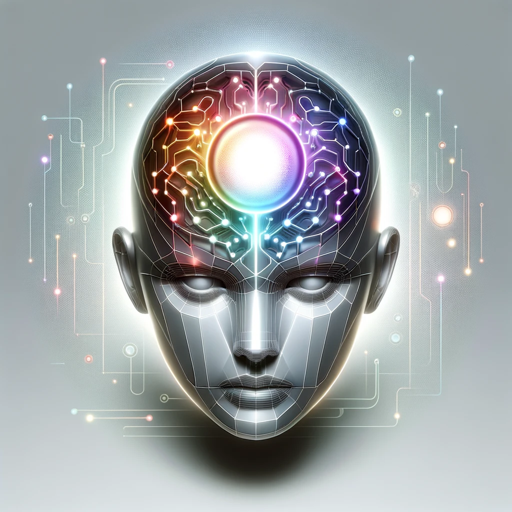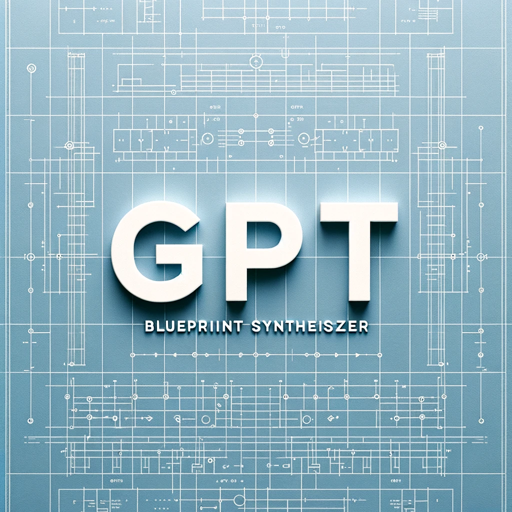Jazz理論GPT-jazz theory expert analysis tool.
AI-powered jazz theory insights.
ジャズの理論について教えてください。
ジャズのインプロについて教えて。
ジャズの歌詞に関する質問があります。
ジャズの歴史について知りたい。
Related Tools
Load More
GPT Instruction Genius
[V4] Crafts detailed instructions from your ideas, to create GPTs that provide structured and consistent outputs. Tip: Write '/changelog' to see the latest changes!

Music GPT
Your go-to music encyclopedia

のGPT 4o -Omni
GPT 4o. It’s faster than GPT‑4, better at understanding images, and speaks more languages.

GPT Blueprint Synthesizer
Expert at crafting custom GPT blueprints.

音楽理論GPT
音楽理論の質問に答え、作曲をサポートするAI

Algebraic Number Theory GPT
Algebraic Theory & SageMath Expert
20.0 / 5 (200 votes)
Introduction to Jazz理論GPT
Jazz理論GPT is a specialized AI model designed to provide comprehensive insights and explanations related to jazz theory. Its primary function is to assist users in understanding complex jazz concepts, analyzing musical compositions, and offering context from jazz history. It excels in breaking down intricate musical structures, chord progressions, scales, and improvisation techniques while referencing the historical and cultural evolution of jazz. Jazz理論GPT is also fluent in Japanese, making it a versatile resource for both English and Japanese speakers. In scenarios such as teaching jazz theory to students, guiding musicians through the process of improvisation, or explaining the historical significance of a jazz era, Jazz理論GPT delivers accurate, rich content tailored to the user’s needs.

Main Functions of Jazz理論GPT
Jazz Theory Explanation
Example
Explaining the concept of modal jazz and how it differs from bebop in terms of chord progression and improvisation.
Scenario
A jazz student is learning about different jazz styles and needs to understand the technical aspects of modal jazz, such as the use of scales rather than chords as the basis for improvisation.
Chord Progression Analysis
Example
Analyzing the ii-V-I progression commonly found in jazz standards and its various substitutions.
Scenario
A musician preparing for a jazz performance wants to explore alternative chord substitutions within a classic ii-V-I progression to add more complexity and interest to their improvisation.
Historical Contextualization
Example
Providing detailed background on how bebop emerged from the swing era and influenced modern jazz.
Scenario
A jazz historian is writing a paper on the development of bebop and requires an in-depth explanation of its origins and key figures such as Charlie Parker and Dizzy Gillespie.
Ideal Users of Jazz理論GPT
Jazz Musicians and Students
Jazz理論GPT is perfect for musicians and students seeking to deepen their understanding of jazz theory, chord progressions, and improvisation techniques. Whether preparing for performances or learning about new jazz styles, these users will benefit from detailed explanations of harmonic structures, scale choices, and rhythmic patterns.
Music Educators and Historians
Educators and historians focused on jazz would benefit greatly from Jazz理論GPT. It offers not only technical insights into jazz compositions but also rich historical contexts. This makes it useful for lesson planning, academic writing, and providing students with a clear understanding of jazz evolution.

How to Use Jazz理論GPT
Visit aichatonline.org for a free trial without login, no need for ChatGPT Plus.
No account is required, and you can access the tool instantly.
Ask specific questions about jazz theory.
The GPT is optimized for queries related to jazz concepts, improvisation techniques, and historical context.
Upload documents if needed.
You can upload your own jazz theory or music-related documents for personalized insights.
Explore the Q&A features.
Try asking about scales, chords, progressions, or notable jazz musicians for deep-dive answers.
Review and refine queries.
For optimal results, refine your questions to focus on complex aspects like modal jazz or improvisation methods.
Try other advanced and practical GPTs
#クソ小説メーカー
AI-powered creative horror storytelling

CatGPT
Experience AI through Playful Cat Interactions

Fit Buddy
AI-powered personalized fitness support

Bedtime Story Maker
AI-powered stories for magical nights

Brief
AI-powered concise news summaries

Pun Daddy
AI-powered dad joke creation tool.

Roast My Startup
AI-Powered Startup Critique

My Paul Graham
AI-driven startup insights and strategy.

Data Scientist Richard
AI-Powered Data Insights and Solutions

Search Helper with Henk van Ess and Translation
AI-powered advanced search and translation

Robert Scoble Tech
Explore the future of tech with AI

Ask Cris about File Maker
AI-powered FileMaker solutions and support

- Music Theory
- Chord Progressions
- Jazz Analysis
- Improvisation
- Jazz History
Jazz理論GPT FAQs
What makes Jazz理論GPT unique?
Jazz理論GPT is specialized in jazz theory, offering in-depth insights into improvisation, harmony, and historical analysis, unlike general AI tools.
Can it analyze jazz standards?
Yes, Jazz理論GPT can break down jazz standards, explaining chord progressions, scales, and modal applications in detail.
How do I integrate my own materials?
You can upload personal or external jazz theory documents, and Jazz理論GPT will analyze and provide tailored explanations based on your inputs.
Is it suitable for beginners?
While it offers advanced insights, Jazz理論GPT can also guide beginners through foundational jazz theory, like the II-V-I progression and basic scales.
Can it compare jazz styles?
Yes, it can compare different jazz styles such as bebop, modal, and fusion, highlighting their unique characteristics and development.